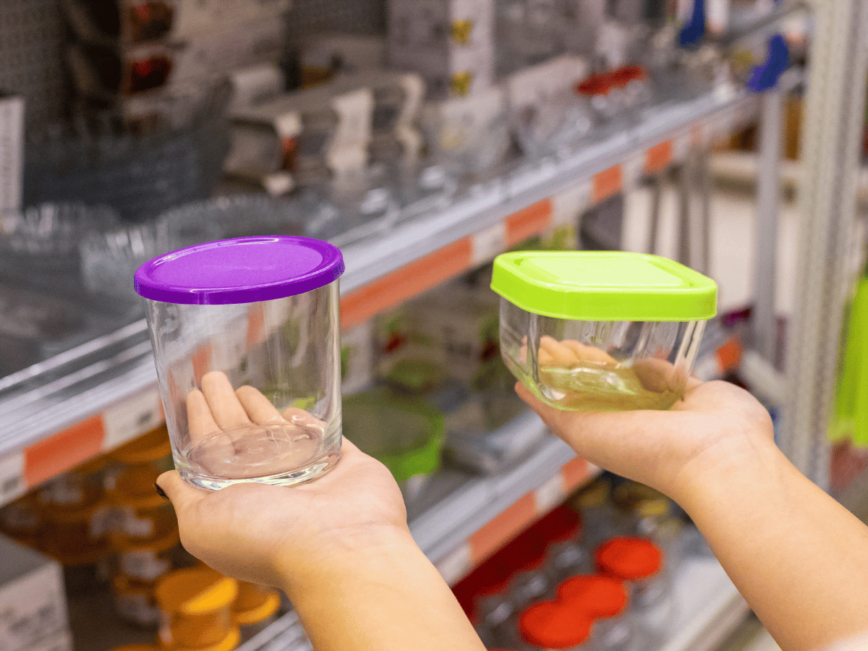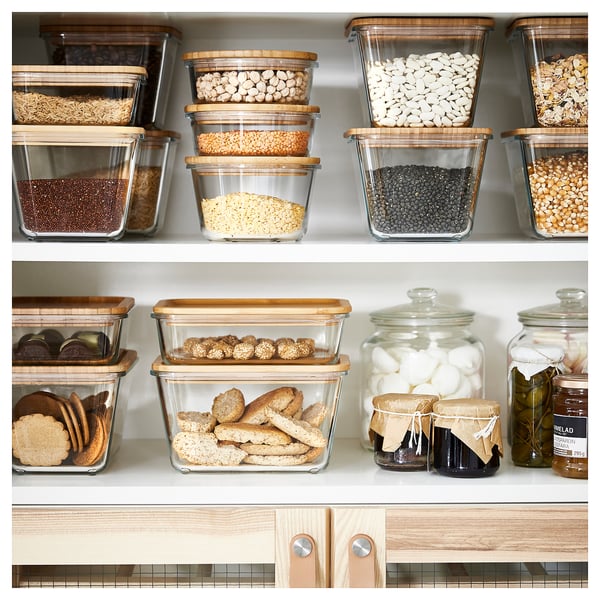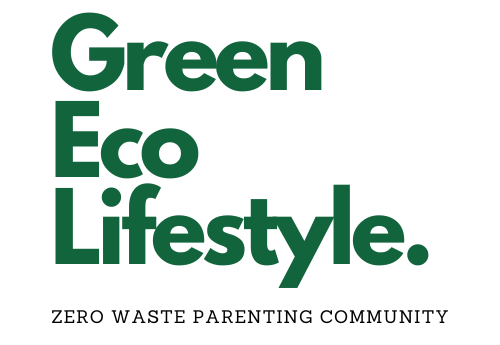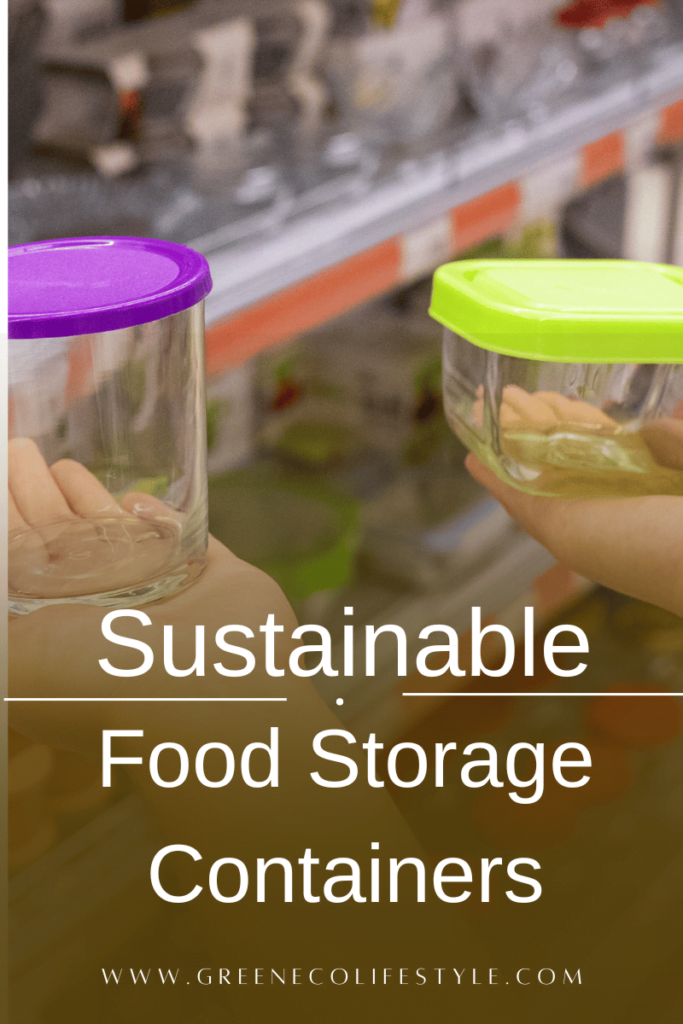
Eco-Friendly Food Storage Containers
Looking for sustainable food storage containers? In today’s fast-paced world, no kitchen is complete without- you’ve guessed it right- food storage containers. These little lifesavers not only keep our leftovers safe but also reduce food waste and maximise our kitchen space.
With a myriad of options available in the market, let’s take a closer look at some of the best food storage containers while exploring the do’s and don’ts to keep in mind whilst using them. So, strap on for an insightful journey that is sure to change the way you perceive storage in your kitchen cupboards!
Quick Links
Reading Time: 5 mins
Disclaimer: This article has affiliate links to products mentioned throughout. If you were to purchase a product, I make a small commission from the sale which supports this blog. Read the Privacy Policy for more details.
Sustainable Food Storage Containers
Reusable or sustainable food storage containers are a great way to reduce food waste and keep your food fresh for longer. It’s important to label each container with the date and contents. Store food at the correct temp to keep it fresher for longer.
Investing in quality containers that are designed to keep food fresh and free from odors is highly recommended. Air-tight containers and thermos-style containers, like the airtight food containers mentioned in the blog title, are ideal for this purpose.
When storing leftovers, make sure to put them in the refrigerator or freezer as soon as possible after cooking. For longer-term storage, your freezer is a great place to store vegetables, fruits, and other food items for up to 6 months.
It’s a great idea to invest in sustainable food storage containers. As mentioned in the usage example, even if you think they’re a little pricey because you’ll save on food waste and money because you won’t have to replace food as often.
It’s also important to regularly check your food containers to ensure that the food is still fresh and safe to eat. If any food has gone bad, rather than throwing it away, consider composting to reduce food waste. With the proper food storage containers and techniques, you can make sure that your food stays fresh for longer.
Environmental impact of plastic container waste
Food storage containers are an essential part of many households, but they can also be a major source of waste and pollution. Plastic storage containers, can take hundreds of years to degrade. Releasing toxic chemicals into the environment and contributing to greenhouse gas emissions when incinerated.
These plastic storage containers can also leach chemicals into the food and liquids they contain, posing a risk to human health. Studies have found that chemicals in plastics can leach into our food, especially when heated, which can contribute to a laundry list of health issues ranging from cancer to cardiovascular disease.
Additionally, plastic storage containers can be a source of microplastics, which can be harmful to marine life. Plus, if you’ve ever opened a kitchen cupboard with an aesthetically pleasing arrangement of glass jars, you know that environmentally friendly food containers, such as plastic storage containers, look better.
Different types of Sustainable Snack Containers
Finding the right sustainable food storage containers for your needs can be a challenge, so it’s important to consider all sustainable options.
- Reusable glass food storage containers are a great choice as they are durable, easy to clean, and don’t retain odours or flavours.
- Stainless steel food containers are non-toxic and can be reused many times.
- Bamboo food containers are another great choice as they are lightweight, naturally resistant to mould and odours.
- Biodegradable containers are made from plant-based materials and are compostable, making them perfect for storing food that doesn’t need to be refrigerated.
- Silicone food storage bags are an excellent alternative to plastic bags and can be reused multiple times. They also provide added benefits such as being heat resistant.
- With so many options available, it’s easy to find the perfect food storage containers for your needs.

Food Storage Containers, Glass Tupperware
Glass food storage containers are becoming increasingly popular as they offer a great way to store food. They are airtight, hygienic, non-porous and long-lasting, making them the perfect choice for storing all kinds of food items such as leftovers, snacks, salads and more.
Not only are glass containers incredibly versatile, but they are also microwave, oven, freezer and dishwasher safe. What’s more, they come in a variety of shapes and sizes, so you can find the perfect size for whatever food you need to store.
When it comes to sustainability, glass containers are hard to beat. They can be reused again and again, making them an environmentally friendly and oven-safe choice for food storage. As they are made from glass, they are also easy to clean and are free from toxins, making them a safe choice for storing food.
Additionally, glass containers made from borosilicate glass are resistant to thermal shock and chemical corrosion, ensuring their durability and longevity.
Food Storage Containers, Bamboo
Bamboo containers are strong and durable, but they are also naturally anti-bacterial, making them perfect for keeping food fresh. Bamboo containers are also lightweight and easy to transport, making them ideal for picnics or camping trips.
They’re easy to clean and can be reused again and again, so you can get the most out of your containers. Plus, when they’re no longer in use, they’re biodegradable so they can be composted.
Recycled Plastic (Bento) Food Containers
Recycled plastic food containers, are an excellent way to cut down on single-use plastics and reduce your environmental footprint. Many brands are BPA-free, these containers are safe for storing food and made from 100% recycled plastic, making them an eco-friendly and sustainable storage solution.
Not only are these fridge containers durable and long-lasting, but they are dishwasher-safe, easy to clean and reuse. Non-plastic food storage containers, such as fridge containers, is a smart choice for the environment.
By opting for recycling food containers, you can contribute to a more sustainable future and help reduce the plastic waste problem. Additionally, it is important to note that using non-plastic containers, like fridge containers, can help avoid the adverse health effects associated with plastics containing bisphenol A (BPA).
Recycled plastic bento food containers come in a variety of shapes and sizes, making them suitable for all kinds of food storage needs. Whether you need something for leftovers, sandwiches, salads, or snacks, there’s sure to be a bento container to suit your needs.
Investing in a set of recycled plastic bento food containers is a great way to reduce your plastic waste and make sure you’re doing your part for the environment.
Food Storage Containers, Stainless Steel
Diving further into our exploration of sustainable food storage containers, let’s highlight the undeniable charm of Stainless Steel options. From a durability standpoint, Stainless Steel food storage containers are second to none – they boast resilience towards scratches, dings and dents, providing a long-lasting solution for your storage needs.
Moreover, they are a fantastic choice for retaining your food’s temperature, whether you prefer it steaming hot or ice cold. Also, an eco-conscious choice, stainless steel containers are a sustainable alternative to plastic, helping you contribute towards reducing landfill waste.
From a style perspective, these gleaming boxes add a sleek, modern touch to your kitchen aesthetic. Don’t overlook the importance of sanitation – stainless steel containers are easy to clean, non-porous, and generally resistant to bacteria.
Food Storage Containers, Silicone
Silicone food storage containers have grown significantly in popularity due to their eco-friendly and durable nature. These containers are specially designed with flexible material, allowing food to be easily inserted and removed, reducing the risk of unnecessary food spillages.
Moreover, silicone lunch box containers, such as Glasslock, are famed for being heat-resistant and freezer-safe, guaranteeing to maintain the freshness and quality of your stored food at various temperature ranges.
An additional benefit is their distinct collapsible feature which is ideal for those with space limitations. So, if you’re seeking a versatile and sustainable addition to your kitchen essentials, investing in silicone food storage containers with an integrated water and airtight silicone seal, like Glasslock lunch box containers, is a worthwhile decision.
These containers are also microwave-safe, allowing you to conveniently heat up your food without transferring it to another dish.
FAQ
What type of food storage containers are best for leftovers and odor-free food?
When it comes to sustainable food storage containers, there are a variety of materials to choose from, each offering their own advantages. Glass storage containers with air-tight lids are the best choice for preserving the quality of food, while stainless steel containers are non-porous and won’t absorb flavours or odours.
Plastic containers are an economical choice, but should always be BPA-free for safety. Ceramic containers are also an option and can be used both in the refrigerator and the oven. And of course, mason jars are a classic choice for food storage and are perfect for pickling, canning, and storing jams and jellies. Additionally, mason jars can be repurposed to store goods in your pantry, such as nuts, dried fruit, spices, or cocoa powder.
Can all types of food storage containers be used in the microwave?
When it comes to sustainable food storage containers, not all can be used in the microwave. Before you use any food container in the microwave, it is important to check the packaging for specific instructions on how to use it safely.
- Plastic and steel containers are not suitable for use in the microwave as the plastic can melt or warp and steel can spark when exposed to high temperatures.
- Glass and ceramic containers are better suited for microwave use, as they can withstand heat without warping or melting. Be sure to check the container for any metal parts, as these can spark or cause damage to the microwave.
If you are using sustainable food storage containers with a lid, be sure to leave the lid slightly open to allow steam to escape. This will help to reduce the risk of any plastic parts melting or warping.
It is also important to keep the sustainable food storage containers clean and free from any food particles that may have been left on it after use. This will help to prevent any bacteria or germs from being transferred to your food.
How can I dishwasher and maintain my food storage containers?
Proper food storage is key to keeping food fresh and safe to eat. Keeping your sustainable food storage containers clean is an important part of this process.
- After each use, it’s important to clean your sustainable food storage containers with warm, soapy water and a sponge or dishcloth.
- For tougher stains, use a mixture of equal parts water and white vinegar to scrub away any grime.
- To get rid of odours by sprinkling some baking soda inside the container and filling it with hot water. Leave it for a few hours before washing as normal.
- Once you’ve finished washing your sustainable food storage containers, it’s important to make sure they’re completely dry before storing. Moisture trapped inside can cause mould and bacteria to grow, so it’s best to dry the containers thoroughly either by hand or in the dishwasher.
- Store containers away from direct sunlight and in an area with good ventilation. This will help keep them in the best condition for future use.
Are there any food storage containers that are both eco-friendly and safe for food storage?
When it comes to food storage, there are lots of options available that are both eco-friendly and safe. Reusable glass or stainless steel containers, such as plastic-free glass tupperware and cloth bags, are a great choice – not only are they free from chemicals, but they also last for a long time, so you don’t have to keep replacing them.
Silicone food storage bags are also a great alternative to plastic bags, as they’re BPA-free and can be reused again and again. Another excellent option for sustainable food storage containers is beeswax wraps.
Beeswax wraps and bags are versatile, reusable, and made of all-natural materials like organic cotton, beeswax, and oils. They can be used just like you would plastic wrap, except they can be cleaned and reused more than once. At the end of their life cycle, they can be composted too.
How do I choose the right size of food storage containers for my kitchen pantry needs?
Having the right sustainable food storage containers is essential for keeping food fresh and organised in your kitchen. Before you buy, there are a few things you need to consider.
Firstly, consider the size of your kitchen. If you have a small kitchen, then you’ll need to go for smaller sustainable food storage containers that won’t take up too much space. If you need to store a lot of food, then you’ll need to go for larger food storage containers.
Next, think about the type of food you want to store. Different types of food may require different sizes of containers. You should also consider the shape of the containers – some containers may be better suited for certain types of food than others.
When it comes to food storage, look for sustainable food storage containers that have airtight lids. This will help keep your food fresher for longer. You should also make sure you get sustainable food storage containers that are easy to clean – you don’t want to spend too much time scrubbing the containers after use.
Conclusions – Final Thoughts
When it comes to sustainable food storage containers, there are many factors to consider in order to find the perfect one.
- Firstly, you should think about the size and amount of food you plan to store. If you want to use the sustainable food storage containers for leftovers, you will need a different size than if you plan to store large amounts of food.
- Secondly, decide if you need sustainable food storage containers which are dishwasher, freezer and microwave safe. This will ensure that you can safely use the containers for different purposes.
- Thirdly, invest in quality containers which are made from durable materials such as glass or stainless steel. This will ensure that the containers last you for a long time and you don’t have to keep buying new ones. Additionally, consider the portability of the containers when choosing which ones to buy.
If you plan to take them on trips or to the office, you need containers which are small enough to fit in your bag. Next, research different brands and compare prices to get the best value for money. Don’t forget that you will need to clean and maintain the containers so factor this into your decision.
Finally, ensure that the lids fit properly and are airtight to keep food fresh. By following these tips, you can find the perfect food storage containers for your needs.
Want to level up your sustainability game? Then take our Sustainable Living Quiz to learn more about your sustainable living habits!
Other Sustainable Living Blogs
Sustainable Living Made Simple: 9 Zero Waste Tips
6 Easy & Sustainable Xmas Decorations Ideas
10 High Quality Eco Friendly Bathroom Cleaning Products
5 Easy Eco Friendly Home Swaps!
Washing Up Liquid Effective & Earth-Friendly
Click here to take our sustainability quiz



